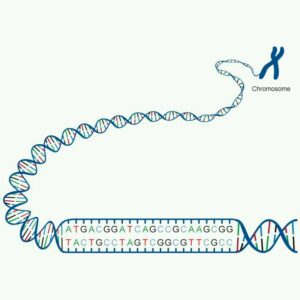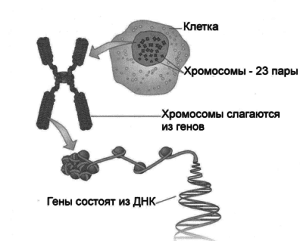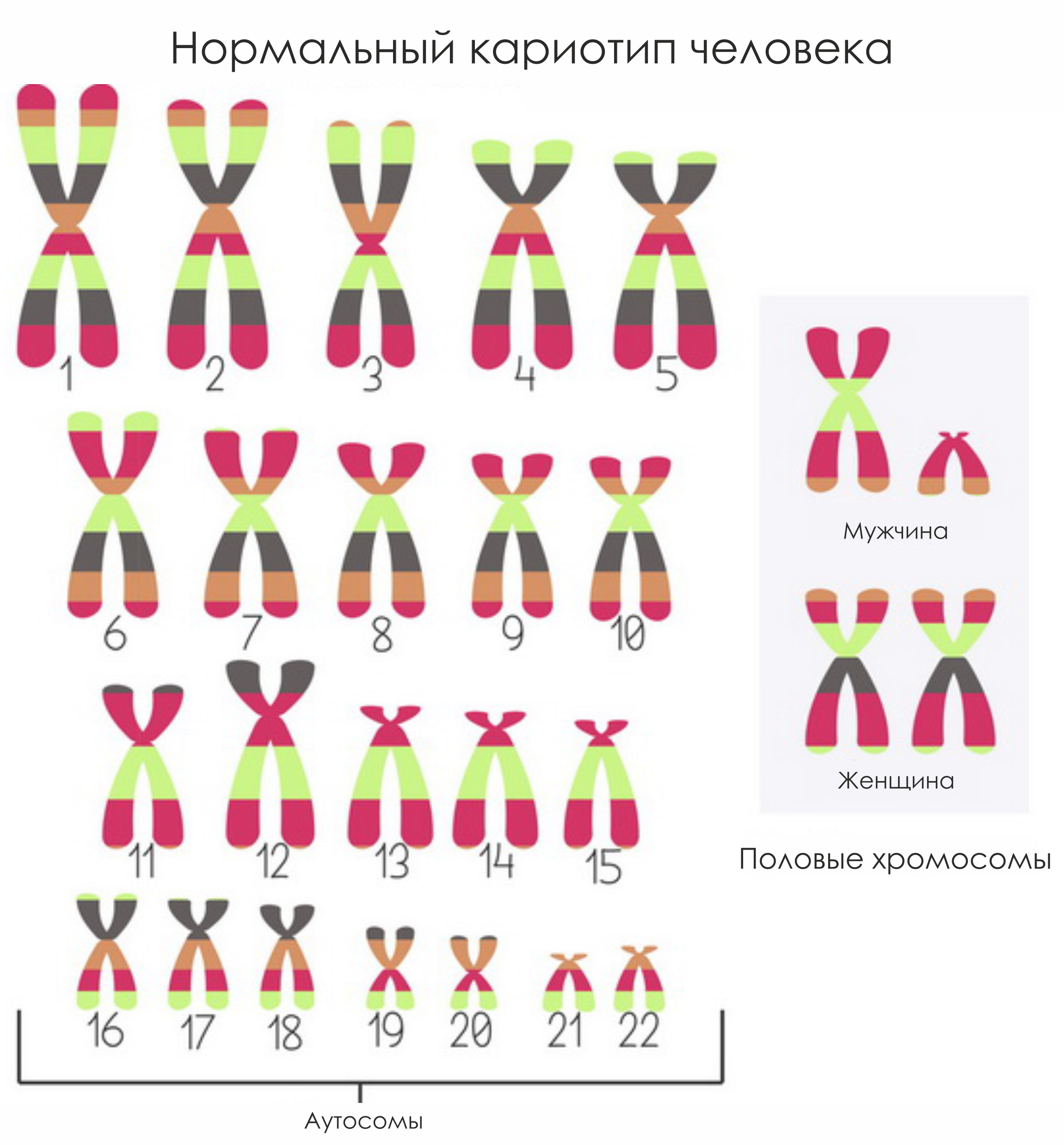We all know that our appearance, certain habits and even diseases are inherited. All this information is encoded in the genes.
A gene is a specific section of DNA consisting of a certain number of nucleotides arranged in a strictly defined combination.
DNA - is a very long molecule made up of structural elements - nucleotides. There are 4 types of nucleotides - adenine (A), thymine (T), guanine (G), and cytosine (C). The nucleotide chain looks schematically as follows: GGAATSTAAG.... This sequence of nucleotides is the DNA strand.
The totality of all human genes is called the genome. The genome is divided into 46 pairs of DNA molecules. One pair of DNA molecules is called a chromosome . Each chromosome carries a specific set of genes, for example, chromosome 18 carries the genes that code for eye color, etc. Chromosomes differ in length and shape and are divided into autosomes and sex chromosomes. Autosomes are identified by ordinal numbers. For example, humans have 46 chromosomes, including 44 autosomes (22 pairs, numbered 1 through 22) and one pair of sex chromosomes (XX for women and XY for men).

The karyotype is a person's chromosome set that does not change throughout life. Normally, a person has 46 chromosomes (23 chromosomes from each parent). The record of a normal female karyotype is 46.XX; a normal male karyotype is 46.XY.

